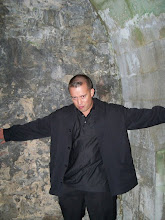Many times throughout history, certain authors(I won't be specific on names, they know who they are)have resorted to making claims that the works they have produced are actually based on true events. Considering that almost all of them are relatively unknown prior to the promotion of said works, the subject of motive then becomes a inquisitive notion. Is the writer at hand actually trying to altruistically spread awareness of a certain event, or is by making such fantastic claims, whether accurate or not, the only way for them to achieve any sort of significance? For the most part, I have to rest my opinions on the latter. The most despicable of these sort of would-be literary giants are the ones that knowingly seek out any kind of tragic event and then do their utmost to capitalize on it. That practice alone reveals that without the actions and sufferings of others, their merits are not worthy of mention. I've even seen some of them add ridiculous elements of the supernatural(A subject that, I feel, should be respected)to their claims, again in the hopes that such subject matter will add to the popularity of their dubious creations.
While I, myself, find many of the stories I create to be inspired by People throughout history that actually existed, I would never dream of making any sort of claim that any of my works were 'True Stories'. Sadly, I find that many in the public cannot seem to differentiate between what actually is just that:A fictional tale inspired by certain nonfiction people or places and a story based in total accuracy on a person or event that happened.
The only solace I find from such things is that such authors, if they even do accomplish any sort of fame, can rarely duplicate the magic from their first work and usually disappear as quickly as they came.
Saturday, February 28, 2015
Subscribe to:
Post Comments (Atom)



No comments:
Post a Comment